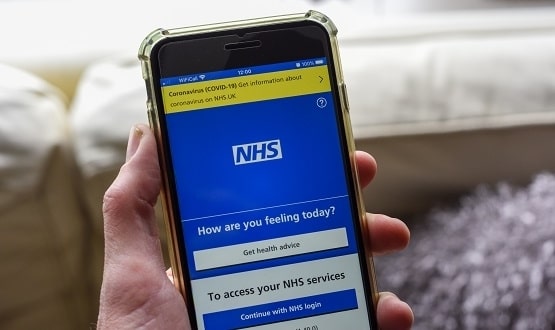The million-pound question: will NHSX survive the McKinsey review?
- 24 November 2020

Sam Shah, the former director of digital development at NHSX, speaks about the upcoming Wade-Gery review, including his own recommendations about what needs to be done.
It recently emerged that Matt Hancock’s review looking at how the main NHS bodies work together to drive digital transformation has been extended for an unknown period — totting up a running cost of close to one million pounds.
The heavily redacted contract, awarded by the Department of Health and Social Care, doesn’t actually tell us what is being reviewed, but it is jointly funded by the main bodies involved: NHS Digital, NHSX, NHS England and NHS Improvement. It will allegedly be published later this year.
The timing is interesting; the work has effectively run in parallel to a major report from the PAC, which has received very little attention, largely in part due to the fact that it was published without a press release on a Friday afternoon. Once you read the report you quickly learn why, as it is nothing short of damning about the lack of focus, strategy and purpose within central government agencies, namely NHSX.
Blank page
As such, the McKinsey review doesn’t need to start from a completely blank page. But when blank pages add thousands of pounds to the bill, some might argue that there is no better place to start.
In my opinion, it would be logical to begin by speaking with those in the know — the individuals fighting hard to make a difference within these underachieving organisations. They should then speak to the people dealing with these bodies on a day-to-day basis – the suppliers, innovators, CIOs and the CCIOs responsible for transformation at both regional and local level. And guess what, these networks already exist; just look at the number of people engaging with one of Will Smart’s recent tweets.
But so far, I’ve struggled to find anyone who has been asked for input. In fact, I know that out of a group of 80 CIOs only one admitted that they had been asked to contribute their thoughts.
So, why haven’t they been consulted?
I’ll take a stab at what I think those working with the bodies would have said: “We have no idea who does what and why – are these providers, commissioners, regulators? Are they providing guidance or mandating?”. They would have also pointed to the fact that while NHS England and NHS Digital have supported digital transformation in pockets – especially through emergency and primary care – and helped innovators to work with AHSNs and local partners, NHSX hasn’t. In fact, I struggle to name a single example of digital transformation that NHSX is responsible for that wouldn’t have happened anyway (and no, forced use of NHSMail does not count as innovation).
Logical step forward
So, if then bodies make it through the review, what would be the most logical step forward?
- NHSD – focus on anything that requires national-level infrastructure, focus on delivery where the national risk is high and work to create a platform infrastructure for others to plug into. Support innovation through creating the rules for the data layer.
- NHSE/I – support the policy environment and incentivise digital transformation. Give the system the freedom by removing some of the vanity metrics but also create commissioning policy and payment model that is purpose-built for digital-first, citizen-centric services.
- NHSX – if it stays then it needs to become a problem solver. Listen to the local teams, understand their actual problems and translate them into policy solutions. Provide support to organisations to accelerate delivery – such as materials for getting the right resource and curated frameworks of trusted partners, and do the discovery work that could be done nationally.
If the bodies could agree on a strategy that reflects the priorities of service users and the providers delivering care on the ground, rather than just ‘seeing how things would fall’, and offer the financial support and resources needed to succeed, then we could be onto something.
Let’s just hope that McKinsey’s latest report doesn’t just wind up like their previous into the National Programme for IT – never seeing the light of day.





6 Comments
Any separation of “listening to the local teams” and delivering the tools/services they need at a national level, is very far from an optimal structure. If NHSD are providing services to meet those requirements then they *must* be in that conversation. Given the amount of money thrown at these organisations, a short study by McKinsey seems like it should be a good investment in the long run – let’s hope it sees the light of day and is acted upon. Perhaps if the study’s cost was £10M it would get more airtime!
As i comented on the PAC report. I had an article, published in late August, lamenting the problems that our vertically siloed and top down NHS structure, along with its blame-game culture caused. These were brought into full focus by our poor ability to respond to the Pandemic. I highlighted as an example our “track and trace” which empasised the NHSX, NHSD, NHSI, NHSE, confusion. The “PAC” report addresses the same issues but fails to address the cause; the desperate need for major restructuring and devolution to the regions . The NHS is only a world leader in only two things, its size and lack of innovaion. The disparities in life-expectancy between the regions (10 years+) should be reason enough for urgent action. : https://yorkshirebylines.co.uk/from-crisis-to-opportunity-is-the-pandemic-the-catalyst-to-reshaping-health-and-care-services-in-england/
If you thought track and trace was bad, wait till you see the vaccine delivery and logistics process, been described as a “train wreck about to happen”
‘Let’s just hope that McKinsey’s latest report doesn’t just wind up like their previous into the National Programme for IT – never seeing the light of day.’ It will see the light of day and then join my list of over NHS 50 reports which did see the light of day but never saw any visible action. I’ll add the link to my list when it is available.
Agree, these reports are not hard hitting enough and are not actioned. Common H&SC senior leader ship.. sort IT!
Comments are closed.